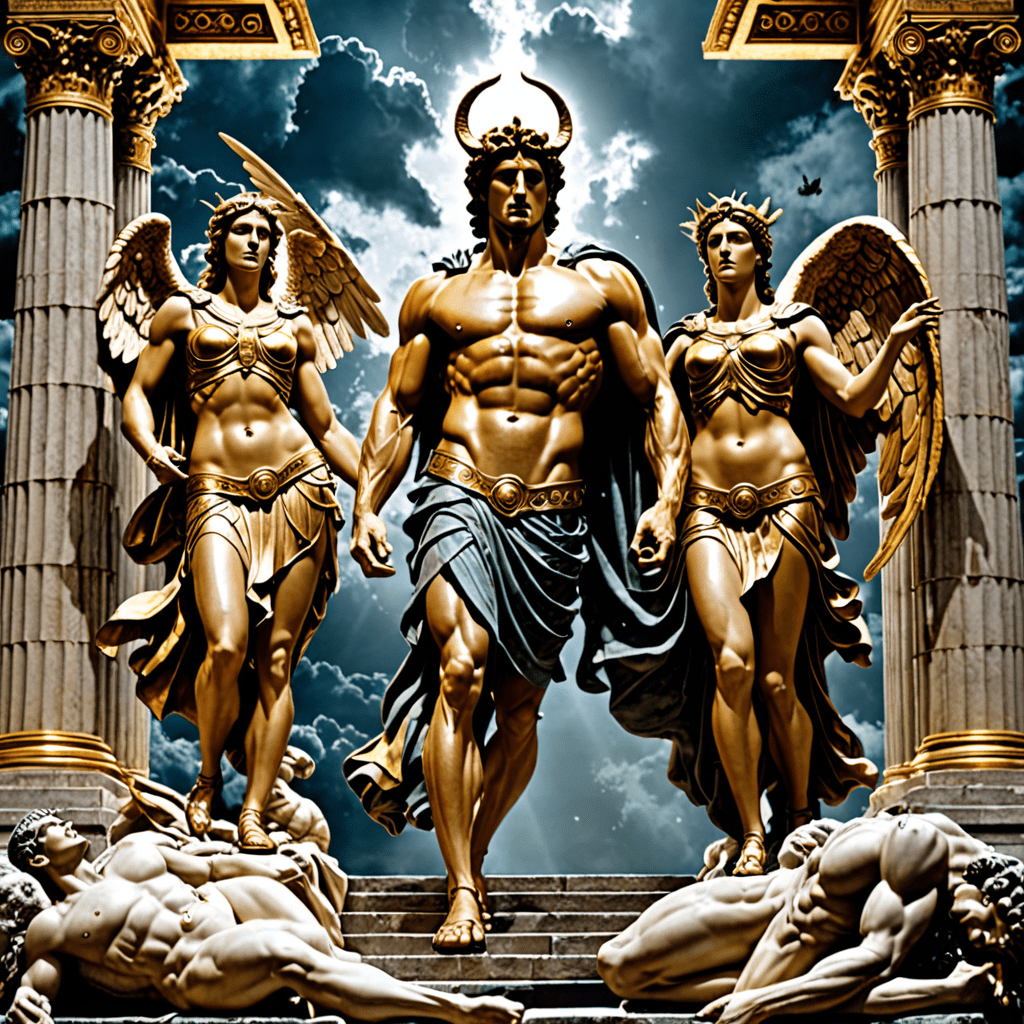Moral Myths and the Pursuit of Happiness: What Legends Teach Us
Introduction: The Intersection of Morality, Myths, and Happiness
Throughout human history, myths have served as fundamental narratives that shape our understanding of morality and the pursuit of happiness. Moral myths are stories that convey ethical lessons and cultural values, often featuring heroes, moral dilemmas, and transformative journeys. Their cultural significance lies in their ability to communicate complex moral truths in relatable ways, ultimately guiding individuals towards a sense of fulfillment and happiness.
The relationship between moral teachings and the pursuit of happiness is intricate. Myths not only provide frameworks for understanding right and wrong but also offer insights into what it means to lead a happy and meaningful life. By examining these narratives, we can uncover essential lessons that resonate with our contemporary experiences.
Understanding Moral Myths: Origins and Functions
Moral myths originate from the collective consciousness of societies, reflecting their values, fears, and aspirations. These myths often emerge from ancient cultures and are passed down through generations, evolving while retaining core moral messages. They serve several functions:
- They provide a sense of identity and belonging within a community.
- They offer explanations for existential questions about life, death, and the nature of happiness.
- They establish moral standards and social norms, guiding behavior and decision-making.
Storytelling plays a crucial role in shaping moral beliefs, as narratives engage listeners emotionally and intellectually. Through compelling characters and plots, moral myths encourage reflection and discussion about ethical dilemmas and the implications of our choices on personal and collective happiness.
Lessons from Ancient Myths: Case Studies
Ancient myths such as the stories of Prometheus and Pandora provide rich moral lessons that continue to resonate today.
Prometheus
The myth of Prometheus, who defied the gods to bring fire to humanity, speaks to themes of sacrifice, knowledge, and rebellion against oppression. His act of defiance underscores the importance of pursuing knowledge and taking risks for the greater good, a pursuit that can lead to both personal fulfillment and societal advancement.
Pandora’s Box
Conversely, the story of Pandora’s Box illustrates the consequences of curiosity and the unforeseen repercussions of our actions. When Pandora opened the box, she released suffering into the world, yet hope remained inside. This myth highlights the duality of human experience, suggesting that while suffering is an inevitable part of life, hope is essential for happiness.
Together, these myths reflect contemporary views on happiness, emphasizing that fulfillment often requires navigating the complexities of human experience, embracing hope despite adversity, and understanding the consequences of our choices.
Cultural Variations: Morality and Happiness Across Civilizations
Moral myths vary across cultures, with Eastern and Western traditions offering distinct perspectives on morality and happiness.
Eastern Traditions
In many Eastern cultures, such as those influenced by Buddhism and Confucianism, moral myths emphasize harmony, collective well-being, and the interdependence of all beings. Happiness is often viewed as a state of balance, achieved through selflessness, compassion, and mindfulness.
Western Traditions
In contrast, Western moral myths tend to focus on individualism, personal achievement, and the pursuit of happiness as a right. Stories of heroes overcoming adversity to achieve their dreams reflect the cultural belief in self-determination and personal agency.
The impact of these cultural narratives on individual and collective happiness is profound, shaping how societies approach ethical dilemmas and understand the nature of fulfillment.
The Psychological Perspective: Myths as Catalysts for Well-Being
From a psychological standpoint, myths serve as powerful catalysts for well-being. Theories in psychology, such as narrative therapy, emphasize the role of storytelling in shaping identity and emotional resilience. Myths can:
- Help individuals process their experiences and emotions.
- Encourage reflection on personal values and life goals.
- Provide frameworks for coping with challenges and adversity.
By engaging with moral myths, individuals can gain insights into their own lives, fostering a greater sense of purpose and happiness.
Modern-Day Myths: The Influence of Media and Popular Culture
In today’s digital age, contemporary moral myths are perpetuated through films, literature, and social media. These modern narratives often reflect current societal values and dilemmas, shaping perceptions of happiness in significant ways.
Examples include:
- Superhero films that promote themes of justice, sacrifice, and the fight against evil.
- Romantic comedies that suggest love is the key to happiness, often overlooking the complexities of relationships.
- Social media influencers who curate idealized lifestyles, creating unrealistic standards for happiness and success.
While these narratives can inspire and entertain, they can also lead to distorted perceptions of happiness, emphasizing superficial connections over deeper, more meaningful relationships.
Critiques of Moral Myths: The Dark Side of Storytelling
Despite their potential benefits, moral myths can also carry negative consequences. Some critiques include:
- Reinforcing harmful stereotypes and social norms that limit individual freedom.
- Creating unrealistic expectations about happiness and fulfillment.
- Fostering a conflict between myth and reality, leading to disillusionment and dissatisfaction.
The challenge lies in discerning which myths promote authentic happiness and which perpetuate illusions that hinder personal growth and well-being.
Reimagining Moral Myths for a Better Future
As society evolves, there is a growing need to reinterpret traditional moral myths to align with modern values. Suggestions for reimagining these narratives include:
- Creating inclusive myths that celebrate diversity and promote empathy.
- Emphasizing collaboration and community over individualism.
- Developing new myths that reflect contemporary challenges, such as climate change and social justice.
By fostering narratives that resonate with today’s values, we can create a cultural framework that promotes well-being and happiness for all.
Practical Applications: Integrating Moral Lessons into Daily Life
To harness the power of moral myths in the pursuit of happiness, individuals can adopt practical strategies:
- Reflect on personal values and identify myths that resonate with them.
- Engage in storytelling as a means of sharing experiences and lessons learned.
- Build community connections through shared narratives that promote collective well-being.
By integrating these lessons into daily life, individuals can create a more meaningful and fulfilling existence while contributing to a happier society.
Conclusion: The Enduring Power of Myths in Shaping Our Lives
In conclusion, moral myths play an enduring role in shaping our understanding of happiness and morality. They offer valuable insights into the complexities of human experience and serve as powerful narratives that guide our actions and beliefs. As we reflect on the myths we embrace, we can better understand their impact on our lives and the pursuit of authentic happiness.
It is essential to engage with these narratives critically, allowing them to inspire personal growth, empathy, and a deeper connection to ourselves and others. Let us embrace the power of myths to foster a future where happiness is rooted in understanding, compassion, and shared values.



